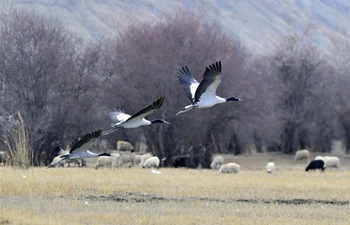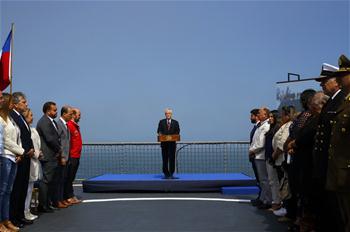HELSINKI, Feb. 28 (Xinhua) -- The annual remembrance day of the Finnish national epic Kalevala, also known as Finnish Culture Day, was observed in the country on Friday.
Kalevala was published in 1849 and is based on collection of folklore tales and poems by Elias Lonnrot, a philologist. Kalevala is deeply rooted in the minds of the Finns and well-known among not only Nordic countries but also other parts of Europe.
As a way to mark the event, the Finnish Literature Society on Friday published the internet-based "Open Kalevala", which makes possible cross-reading of texts with researcher comments and the original sources collected by Lonnrot.
Various other activities were also held in Finland to observe the day, among which a cultural seminar organized by artists and enthusiasts drew many people to the Helsi Central Library Oodi on Friday. Audience shared their views on the epic as well as sang songs and recited poems from it.
When Kalevala was published, Finland was an autonomous Grand Duchy under Trarist Russia. It actually helped Finland establish its independent culture and national identity.
"When a notion about Finns as a nation started gaining ground, Kalevala served as a proof that Finnish culture actually existed," researcher Juhana Saarelainen said in newspaper Helsingin Sanomat. Kalevala was a major asset in forming the Finnish national identity and also in gaining international recognition.
In recent discussion, the peaceful character of Kalevala has increasingly come up. Saarelainen noted that compared to many other folk epics, the personalities of Kalevala are less heroic but more human.
"Instead of fighting, they fail and cry. Kalevala does not tell about wars than about human relations and emotions," he underlined.













